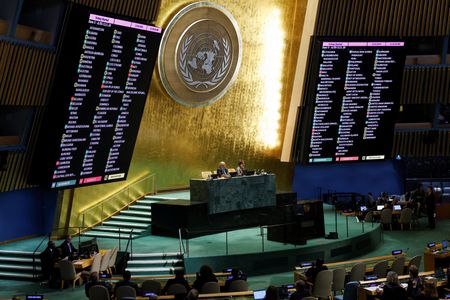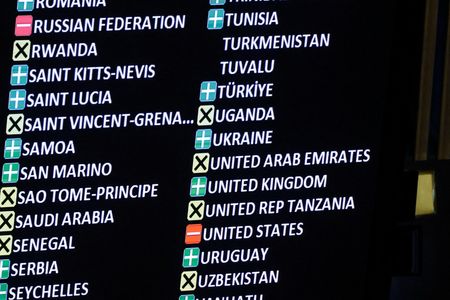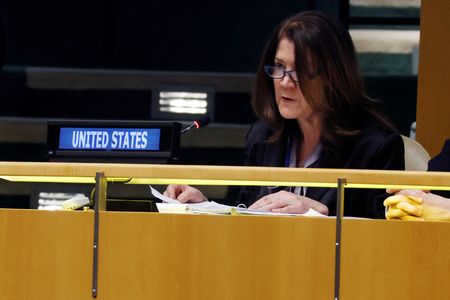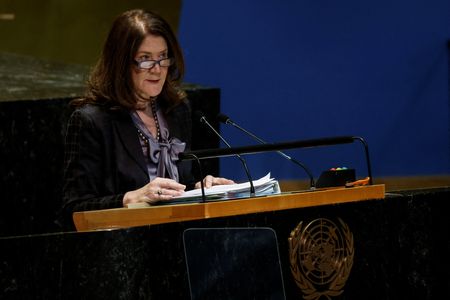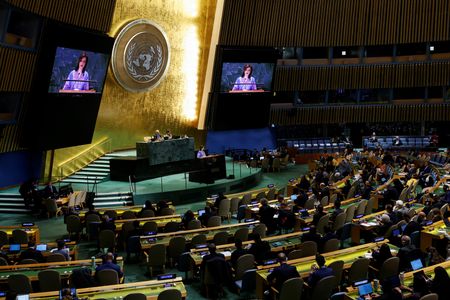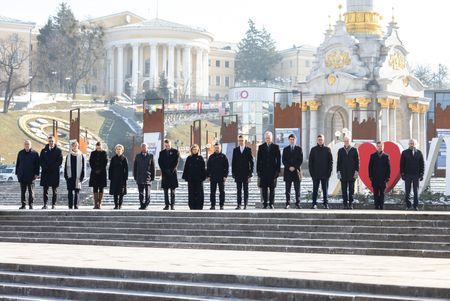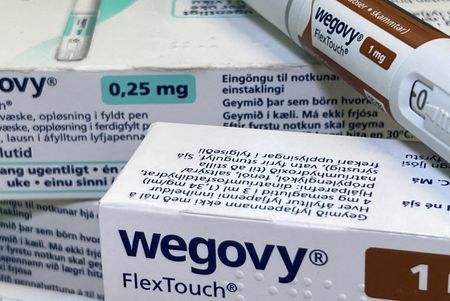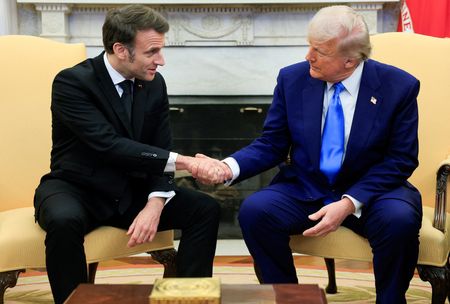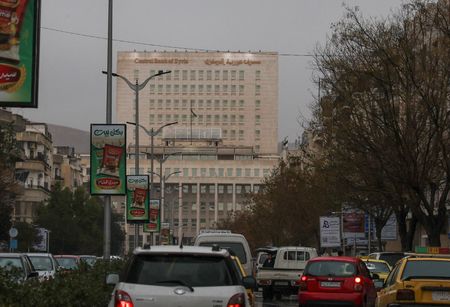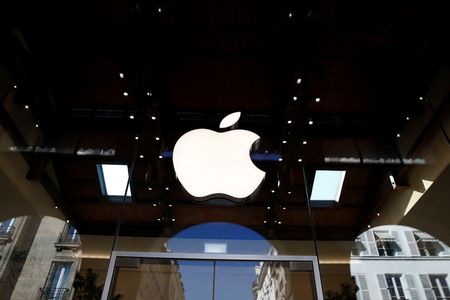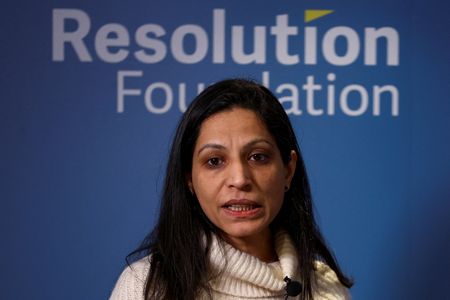By Michelle Nichols
UNITED NATIONS (Reuters) – The United Nations on Monday rejected a U.S. bid to tone down the General Assembly’s stance on Russia’s war in Ukraine as President Donald Trump seeks to broker peace, giving Kyiv and European allies a diplomatic victory at the world body.
The 193-member General Assembly voted on rival draft resolutions – one from Washington and one written by Ukraine and European states – to mark the third anniversary of Russia’s invasion of its neighbor.
The United States was forced to abstain in the vote on its own resolution after European countries successfully amended Washington’s draft to add language reflecting long-held U.N. support for Kyiv during the war, including Ukraine’s sovereignty, independence, unity and territorial integrity.
“This war has never been about Ukraine only. It is about a fundamental right of any country to exist, to choose its own path and to live free from aggression,” Ukraine’s Deputy Foreign Minister Mariana Betsa told the assembly before the vote.
The showdown at the United Nations came after Trump launched a bid to broker an end to the war, sparking a rift with Ukrainian President Volodymyr Zelenskiy and raising concerns among European allies that they and Kyiv could be cut out of peace talks. U.S. and Russian officials met last Tuesday.
The amended U.S.-drafted resolution won 93 votes in favor, while 73 states abstained and eight voted no. Russia failed in a bid to amend the U.S. text to include a reference to the “root causes” of the conflict.
Ahead of the vote on the U.S. text, acting U.S. Ambassador to the U.N. Dorothy Shea said the proposed European and Russian changes pursued “a war of words rather than an end to the war.”
She said the amendments detract “from what we are trying to achieve with this forward-looking resolution: A firm consensus from the members of this body to unite behind a resolution calling for the end to this conflict.”
SECURITY COUNCIL TO VOTE
The assembly also adopted the resolution drafted by Ukraine and European countries with 93 votes in favor, 65 abstentions and 18 no votes. Along with the United States, some other countries that voted no were Russia, North Korea and Israel.
“Today our American colleagues have seen for themselves that the road to peace in Ukraine will not be an easy one, and there will be many who will try to make sure that the peace doesn’t come for as long as possible. But this shouldn’t stop us,” Russia’s U.N. Ambassador Vassily Nebenzia told the assembly.
The original U.S. draft was three paragraphs – mourning the loss of life during the “Russia-Ukraine conflict”, reiterating that the U.N.’s main purpose is to maintain international peace and security and peacefully settle disputes, and urging a swift end to the conflict and a lasting peace.
But European amendments added references to the full-scale invasion of Ukraine by Russia and the need for a just, lasting and comprehensive peace in line with the founding U.N. Charter and reaffirmed the U.N.’s support for Ukraine’s sovereignty, independence, unity and territorial integrity.
“The world wants peace. Ukraine wants peace,” Canada’s U.N. Ambassador Bob Rae said. “The question is: what kind of peace will it be? Will it be a peace based on justice and on the (U.N.) charter and on the principles for which we stand? Or will it be a peace that is a result of an imposition?”
The 15-member Security Council is also set to vote on the same U.S. text later on Monday. A council resolution needs at least nine votes in favor and no vetoes by the U.S., Russia, China, Britain or France to be adopted.
European members of the council are expected to propose a vote on the same amendments to the U.S. text that were put forward in the General Assembly. A State Department official said the U.S. was prepared to veto any proposed amendments.
(This story has been corrected to fix the name of Ukraine’s deputy foreign minister to Mariana Betsa, in paragraph 4)
(Reporting by Michelle Nichols; additional reporting by Simon Lewis; Editing by Susan Heavey and Alistair Bell)

